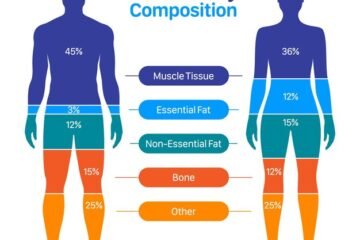Introduction
Having a pet is one of life’s greatest joys, but it also comes with a lot of responsibility. Whether you have a playful puppy, a curious cat, or a small animal like a rabbit, total pet care is essential to ensure they live long, healthy, and happy lives. From proper nutrition to regular vet check-ups, every aspect of your pet’s well-being should be considered. This guide will walk you through everything you need to know about caring for your furry, feathered, or scaly friend.
The Importance of total pet care
Pet care goes beyond providing food and shelter. It encompasses meeting their physical, emotional, and mental needs. A well-cared-for pet is not only healthier but also more likely to live a longer and happier life. Pets depend on us for their well-being, and in return, they offer unconditional love and companionship.
Understanding Your Pet’s Needs
Each type of pet has unique needs that must be met to ensure they thrive. Dogs need plenty of exercise, cats crave mental stimulation, and small pets require specific environments. By understanding the distinct needs of your pet, you can provide the best care possible.
Nutrition for Pets
Choosing the Right Food for Dogs and Cats
Proper nutrition is the foundation of pet health. Dogs and cats require diets rich in essential nutrients, including proteins, fats, vitamins, and minerals. When choosing food, opt for high-quality commercial brands that meet AAFCO (Association of American Feed Control Officials) standards. Make sure to avoid overfeeding, as obesity can lead to a variety of health problems.
Balanced Diet for Small Pets (Rabbits, Guinea Pigs, etc.)
Small animals, such as rabbits, guinea pigs, and hamsters, also require balanced diets. Hay should make up the majority of a rabbit’s diet, supplemented with fresh vegetables and a small amount of pellets. Guinea pigs need vitamin C-rich foods like bell peppers and leafy greens. Always research the specific dietary needs of your small pet.
Hydration: The Importance of Fresh Water
Water is just as important for pets as it is for humans. Always provide fresh, clean water for your pet. For dogs and cats, ensure water bowls are washed regularly. Small pets should have access to water bottles with clean spouts.
Exercise and Physical Activity
Daily Walks and Playtime for Dogs
Exercise is crucial for your pet’s health, particularly for dogs. Daily walks, combined with playtime, keep your dog physically fit and mentally stimulated. Engage your dog with games like fetch, tug-of-war, or agility training to help them burn off energy.
Keeping Cats Active with Toys and Scratching Posts
Cats are natural hunters, and providing them with interactive toys and scratching posts can help mimic their instincts. Regular play sessions with feather toys or laser pointers are great ways to keep cats active and mentally engaged.
Exercise for Small Pets: Wheels, Tunnels, and Play Areas
Small pets, such as hamsters and guinea pigs, also need physical activity to stay healthy. Provide them with wheels, tunnels, and other play structures that encourage movement and exploration. Hamsters love running on wheels, while guinea pigs enjoy exploring tunnels and ramps.
Grooming and Hygiene
Regular Bathing and Brushing
Keeping your pet clean is essential for their health. Dogs typically need regular baths, depending on their breed and coat type. Cats usually groom themselves but may need brushing to reduce shedding and prevent hairballs. Small pets, such as rabbits, also require brushing, especially during shedding seasons.
Dental Care for Pets
Dental hygiene is often overlooked but is vital for pets’ health. Regular brushing with pet-safe toothpaste helps prevent tartar buildup and gum disease. For small pets, providing chew toys or sticks can help maintain dental health.
Nail Trimming and Paw Care
Keeping your pet’s nails trimmed is essential to prevent discomfort and potential injuries. Use pet-friendly nail clippers and be cautious not to cut too close to the quick. Regularly check your pet’s paws for signs of injury, dryness, or irritation, especially for outdoor animals.
Pet Healthcare Essentials
Regular Vet Check-Ups
Annual or bi-annual vet visits are essential for early detection of health problems. During these visits, the vet will perform a full check-up, administer vaccinations, and provide preventive care advice based on your pet’s specific needs.
Vaccinations and Preventive Care
Vaccinations protect your pet from harmful diseases like rabies, distemper, and parvovirus. Flea, tick, and heartworm prevention is also critical, especially for dogs and cats. Consult your vet about the best preventive care plan for your pet.
Flea, Tick, and Parasite Control
Keeping your pet free from parasites is vital for their health and comfort. Regular flea and tick treatments, along with deworming medications, can prevent infestations and related illnesses.
Mental Stimulation and Enrichment
Interactive Toys and Games for Pets
Pets, particularly dogs and cats, need mental stimulation to stay sharp and happy. Puzzle toys, treat-dispensing toys, and interactive games are excellent ways to challenge their minds and prevent boredom.
Training: Teaching New Tricks and Commands
Training your pet not only strengthens your bond but also keeps their mind active. Dogs, in particular, thrive on learning new commands and tricks. Start with basic obedience training, then progress to more advanced skills as they master each one.
Socialization: Meeting Other Pets and People
Socialization is crucial for pets, especially during their early development. Expose your pet to different environments, people, and other animals to help them develop social skills and reduce anxiety or fear.
Safe and Comfortable Living Environment
Pet-Proofing Your Home
Pet-proofing is essential to prevent accidents or injuries. Remove toxic plants, secure loose wires, and ensure there are no small objects your pet could swallow. For small pets, make sure their cages or enclosures are safe and escape-proof.
Providing a Cozy and Secure Space
Pets need a quiet, comfortable place to rest and feel secure. Provide a soft bed for your dog or cat, and ensure small pets have cozy hiding spots in their enclosures. A secure and peaceful environment helps reduce stress and anxiety.
Traveling Safely with Pets
When traveling with pets, safety is a top priority. Use pet carriers, seat belt harnesses, or travel crates to keep them secure in the car. For longer trips, make sure to bring along their food, water, and any medications they may need.
Recognizing Health Problems in Pets
Common Signs of Illness
Knowing the signs of illness can help you act quickly if something’s wrong. Look for symptoms like changes in appetite, lethargy, vomiting, diarrhea, or excessive scratching. Any sudden changes in behavior may indicate a health issue.
How to Respond to Pet Emergencies
In the case of a pet emergency, such as choking, difficulty breathing, or trauma, it’s crucial to act quickly. Keep your vet’s emergency contact handy and know the basic first-aid steps for your pet. In serious cases, seek veterinary care immediately.
When to Seek Veterinary Care
Regular vet visits are essential, but there are times when immediate care is necessary. If your pet is showing signs of pain, unusual behavior, or has suffered an injury, it’s important to consult your vet as soon as possible.
Seniortotal pet care
Adjusting Diet and Exercise for Older Pets
As pets age, their dietary and exercise needs change. Senior pets may require lower-calorie food and gentler forms of exercise to maintain their health. Consult your vet to determine the best care plan for your older pet
Managing Common Age-Related Health Issues
Older pets often face health issues like arthritis, reduced mobility, and vision or hearing loss. Regular vet check-ups and the use of supplements or medications can help manage these conditions, ensuring your senior pet remains comfortable.
Ensuring Comfort and Mobility
As pets age, they may need extra support to stay comfortable. Provide soft bedding, ramps to help them get onto furniture, and non-slip mats to make it easier for them to move around. Maintaining a clean and accessible environment is key to their well-being.
Pet Insurance and Financial Planning
Benefits of Pet Insurance
Pet insurance can be a lifesaver when it comes to unexpected medical expenses. It covers a portion of your pet’s medical bills for accidents, illnesses, and sometimes even routine care. Having insurance ensures you can provide the best care without worrying about costs.
Saving for Unexpected Vet Bills
Even with insurance, there may be out-of-pocket expenses. Setting aside an emergency fund for your pet ensures you can cover any sudden medical needs without financial stress.
Budgeting for Long-Termtotal pet care
Caring for a pet is a long-term commitment, so it’s essential to budget for food, healthcare, grooming, and other needs throughout their life. Planning ahead will help you manage these expenses smoothly.
Conclusion
Caring for a pet is both a joy and a responsibility. By providing proper nutrition, regular exercise, mental stimulation, healthcare, and a safe environment, you’re ensuring your pet leads a healthy and fulfilling life. Whether it’s a playful puppy, a curious cat, or a cuddly rabbit, your dedication to their well-being will create a strong bond and lasting companionship.total pet care is all about love, attention, and understanding your pet’s unique needs.
FAQs
1. What is the Best Way to Introduce a New Pet to the Family?
Gradually introduce your new pet to existing total pet care and family members in a calm and controlled manner. Allow them time to adjust and establish their own space to avoid overwhelming them.
2. How Often Should I Take My Pet to the Vet?
For most pets, an annual vet check-up is recommended. However, senior pets or pets with medical conditions may need more frequent visits to monitor their health.
3. What are the Signs My Pet is Stressed?
Signs of stress in pets include excessive grooming, panting, hiding, pacing, or changes in eating habits. It’s important to identify the cause of stress and address it promptly.
4. How Can I Help My Pet Lose Weight Safely?
Weight loss in pets should be gradual. Adjust their diet by reducing portion sizes and incorporating more exercise into their routine. Always consult your vet before making any changes.
5. Can Pets Get Depressed?
Yes, pets can experience depression, often due to changes in their environment, loss of a companion, or lack of mental stimulation. Providing attention, exercise, and companionship can help alleviate their mood.
You can see lates updates on: thefsiblog



